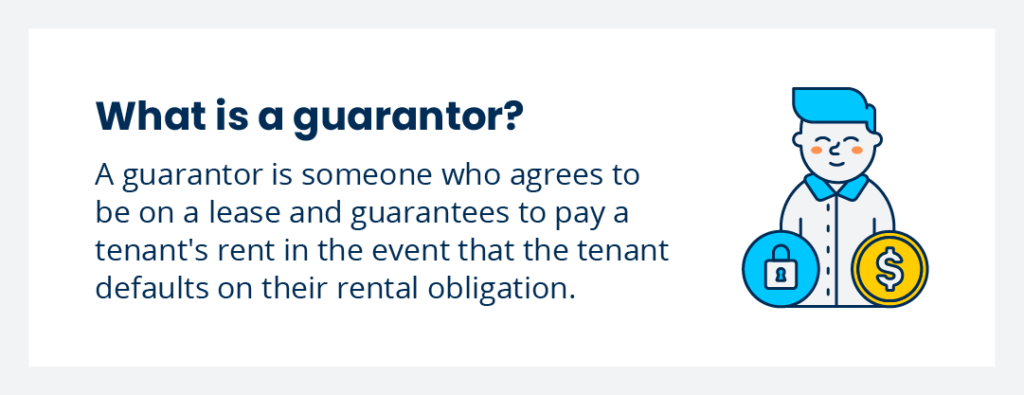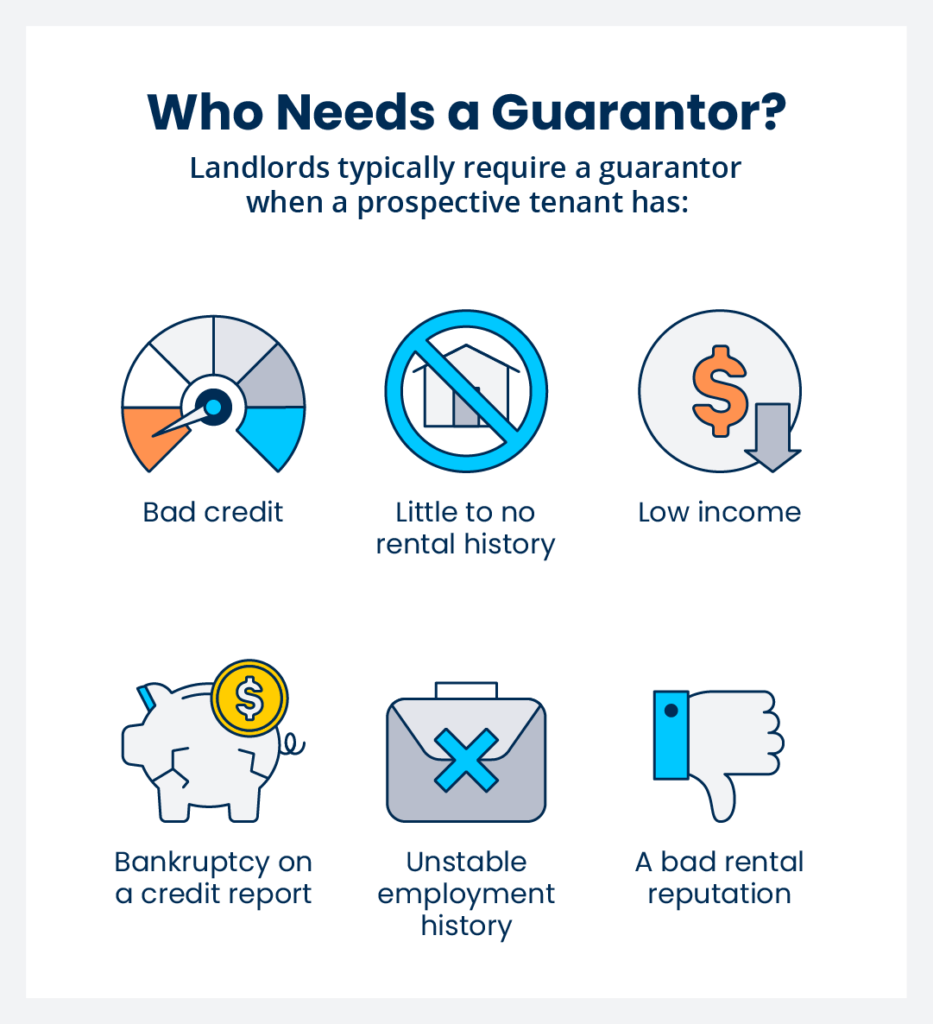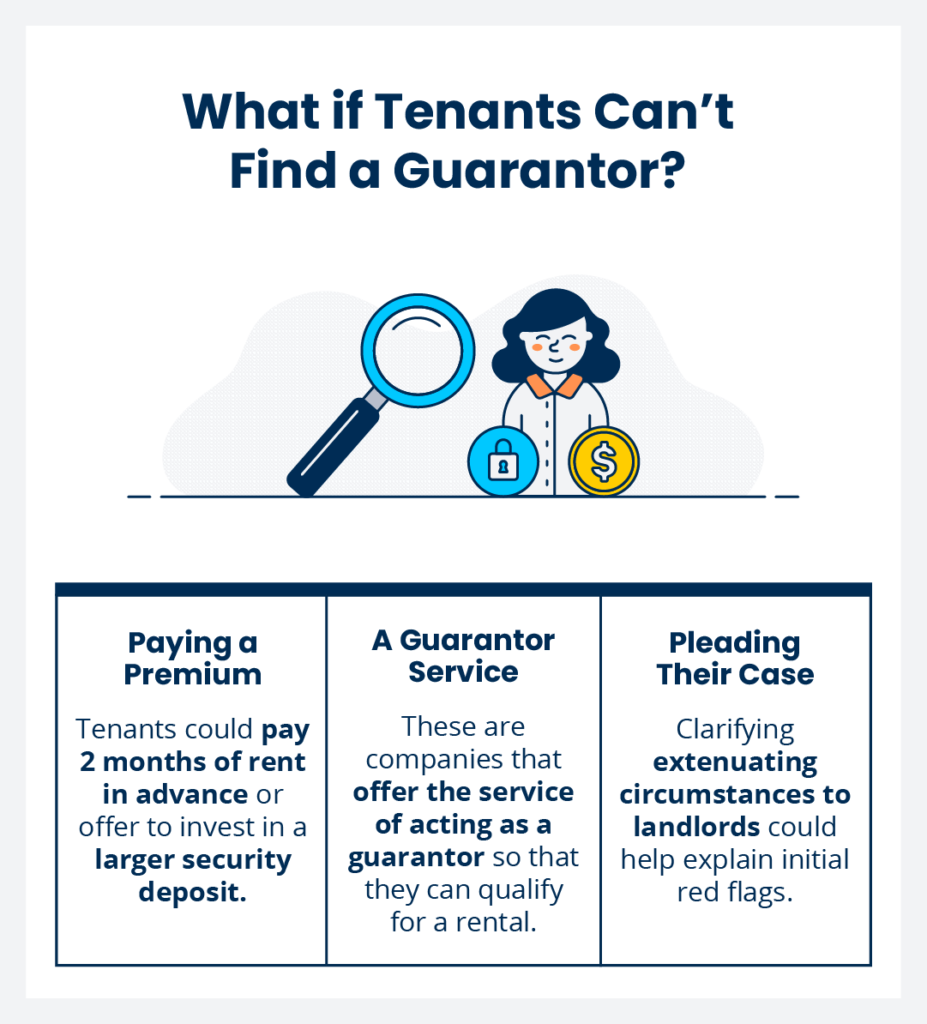9 min read
How to Get Property Management Clients (Lead Gen Methods)
With such a competitive and fast-paced real estate market, especially rental markets, knowing how to get property management clients is crucial for starting and...

A guarantor is someone who agrees to be on a lease and guarantees to pay a tenant’s rent in the event that the tenant defaults on their rental obligation. This includes rent payments, the unit’s condition, and any other fees that may be incurred over the rental period.
Usually, a guarantor is needed when a prospective tenant doesn’t meet the qualifications of a rental application including proof of income or lack of credit history. A common example of a guarantor is a parent or guardian that signs on behalf of their college student’s first apartment as they might not have a credit score yet.
As a landlord, it’s important to ensure that you rent your properties to responsible tenants. Since guarantors are legally accountable for ensuring the rent gets paid, landlords can feel more confident in renting to a particular tenant. Keep reading to find out more on what is a guarantor and why they can be great to have on a lease.

Like a guarantor, a co-signer is someone who jointly signs a lease to guarantee payment. However, a co-signer has more rights under the lease than a guarantor and is entitled to live in the rental as a tenant. A guarantor is financially responsible for a rental but is not authorized to live in the rental unit.

When you run a tenant screening report, you’ll be able to see various insights on your prospective tenant including their criminal background , credit score, bankruptcies, eviction history, and more. These are all important factors to consider as they can indicate major red flags in potential renters. Generally, landlords are hesitant to rent to a prospective tenant if they have:
A guarantor can solve some of these problems by guaranteeing that if a renter is unable to pay rent or for repairs, it will still be taken care of.

Almost anyone can qualify to be a guarantor. Usually, it’s a family member or friend that personally knows the prospecting tenant and trusts that they’ll be able to make the payments necessary to afford rent. However, there are a few guidelines to be aware of to check that your guarantor qualifies:
While these are all standard qualifications, every landlord or property management company is different so note the requirements on the rental application.

The biggest benefit of having a guarantor on a lease is that there is a legal cushion in case a tenant can’t pay rent or causes issues. However, some prospecting renters who need a guarantor may not have someone to turn to for help. Whether you are assisting a prospective renter or are a tenant in this situation, here are a few options to consider.
If a tenant doesn’t have someone close to them that qualifies to be a guarantor, there are guarantor services companies available. These companies offer the service of acting as a guarantor so they can qualify for a rental, taking out the hassle of trying to find a suitable guarantor.
This option is also great for those who don’t want to bring their relationships into a lease agreement. If a tenant misses a rental payment, not only will a guarantor be asked to remit those payments, but their credit score may take a hard hit. This could cause issues within a close relationship.
Although bad credit is an understandable red flag, sometimes credit scores don’t accurately reflect a current situation. Some landlords are willing to overlook bad credit history if a tenant offers to pay more upfront, like paying two months of rent in advance or offering to invest in a larger security deposit.
This strategy shows landlords that a tenant has the money needed to make rental payments. If anything, these payments could potentially serve as a buffer in case of unexpected financial challenges that occur.
As mentioned above, certain red flags on a background check or credit report may not accurately reflect the tenant’s current financial situation. Extenuating circumstances can cause hesitation on approvals, but some landlords are willing to hear a prospective tenant’s case.
As a landlord, it’s important to ask good questions and fully understand the circumstances that cause any red flags that appear on rental applications or during background checks.

As you debate whether to rent to a specific renter with a guarantor or to choose a different applicant, it’s important to assess the pros and cons of having a guarantor on a lease.
Ultimately, if you have other great applicants that wouldn’t require a guarantor, it might make sense for you to rent to a different person that meets your renting criteria by themselves.
A guarantor isn’t always necessary, but they are great options for prospecting tenants who have low credit scores, low income, or no-to-poor rental history. As a landlord, guarantors help protect your rental investment as they are responsible for your tenants’ rental payments. To help you find the right tenants for you and your rental, use our free rental advertising feature to market your property on dozens of listing websites all from one place.
9 min read
With such a competitive and fast-paced real estate market, especially rental markets, knowing how to get property management clients is crucial for starting and...
8 min read
Condo property management, on its face, is exactly what it sounds like — overseeing one or many units in a condominium building...
7 min read
Finding the ideal commercial or residential rental property can be challenging for renters, as it may only meet some of their specific...